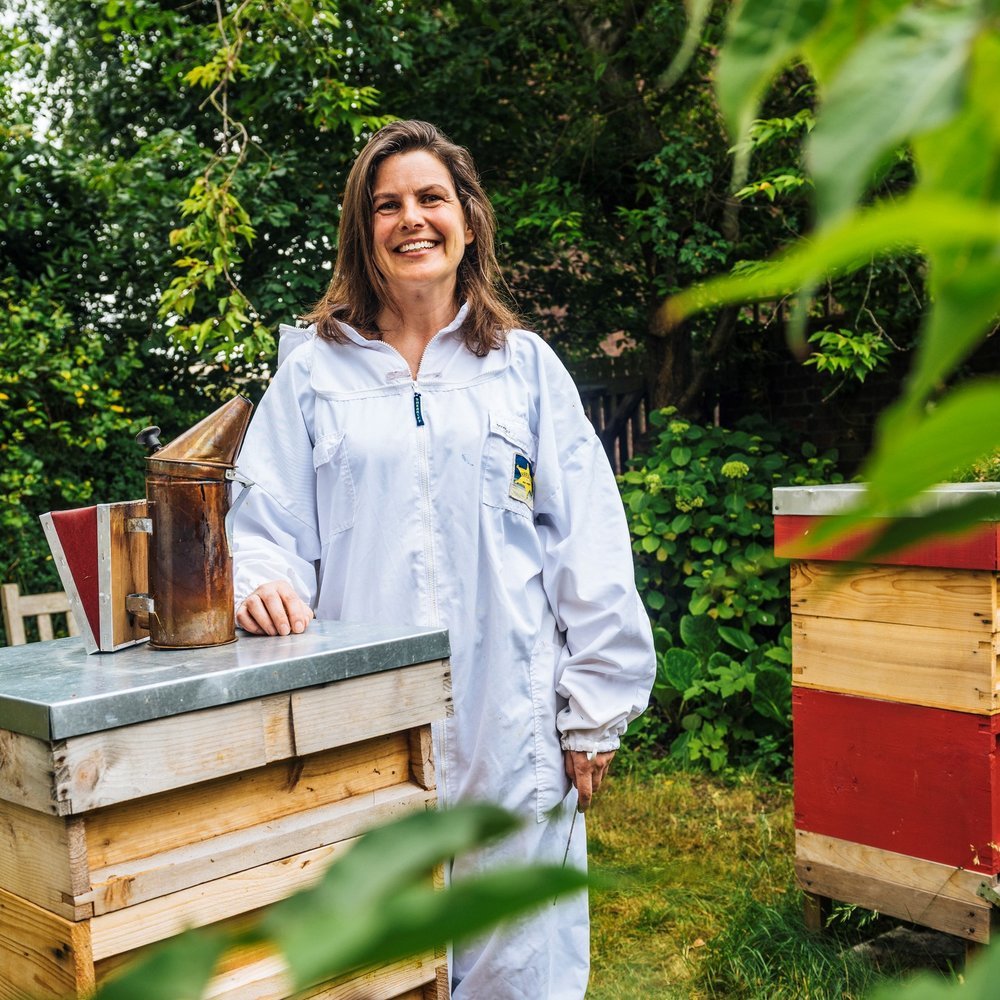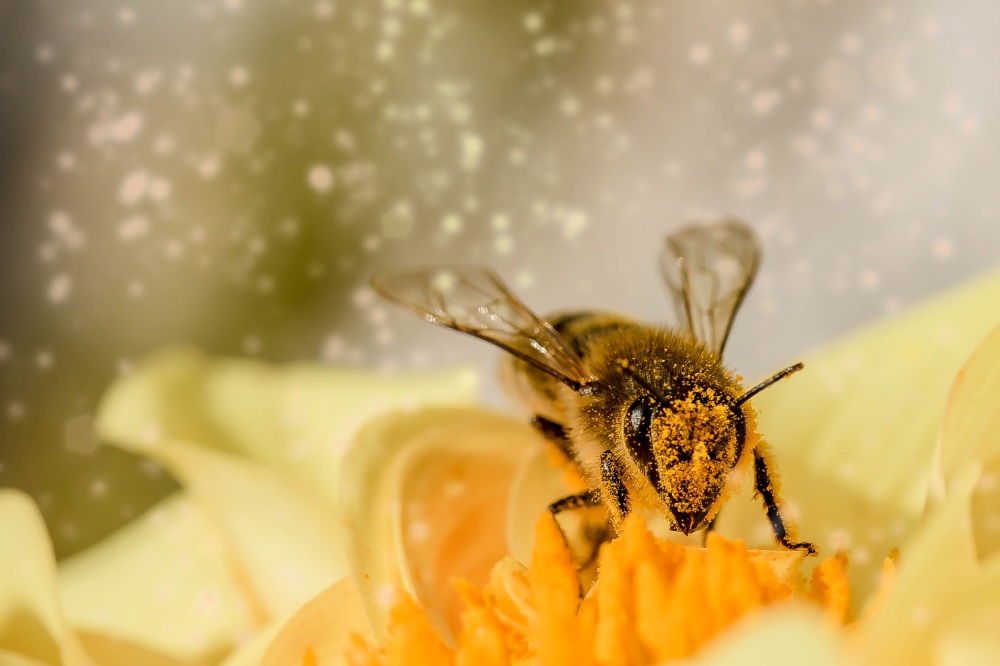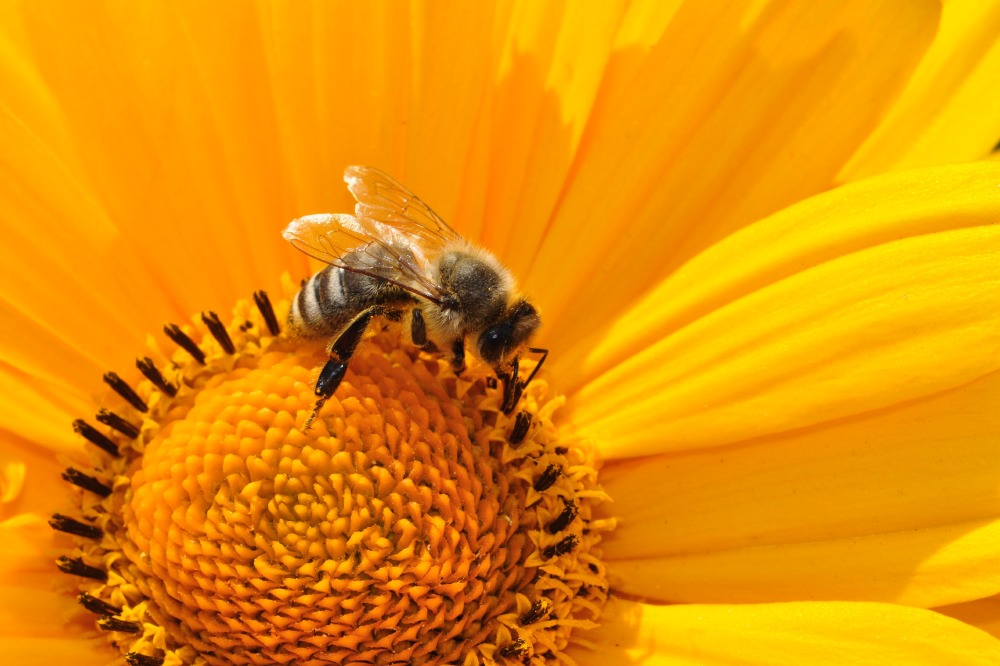It has been said that humanity would survive for about only 4 years should bees disappear from the face of the Earth. And disappearing they are...

Emily Abbott gives some exclusive advice to Female First readers
Meet the woman on a mission to save our bees: Emily Abbott. Founder of Hive & Keeper, the British honey brand that produces raw, untreated, unheated honey with a promise to respect the bees and their natural habitat. Each jar of honey is put together carefully and lovingly by beekeepers all over the country from a single apiary, completely unique in taste, textures and colours.
Emily’s love for the bees started long ago but her devotion initiated over 5 years ago when she first took beekeeping as a hobby. While training, she discovered only 7% of the honey sold on our shelves came from actual British soil with a staggering 40% from China all designed to look and taste the same, definitely not respecting the bees eco-system. Alarmed by the decreasing numbers of bees left, Emily decided to make it her mission to bring awareness to the condition of our favorite pollinators and change the way we consume honey.
Like Sir David Attenborough or many before her, Abbott urges everyone to take action to limitate the damage made on our bees and ultimately our planet.

Here are 7 easy tips from Emily that will help us all save the bees:
1. Plant pollinator-friendly plants in gardens, pots, window boxes or anywhere you can as our bees need food! Recent research shows we've lost 97% of our wild flower meadows since the 1930's. In London we lose the green space equivalent of Hyde Park every year to driveways, decking and developments.
2. Grass is a green desert to bees so get a clover mix sown in too: good for the grass and the bees!
3. Don’t keep bees unless you've been taught and have an experienced mentor to help you. Bees are very clean creatures so spotting disease can be difficult as they clear the evidence out. If you don't know what you're looking for, diseases can spread quickly across other hives in the area. You can learn to be a beekeeper and how to work with the bees accordingly!
4. Most of the bees in the UK are solitary and live in holes in the wood, brickwork, the ground etc.. We need all the different types of bee as they are all skilled at pollinating different plants - eg: bumble bees are the best pollinator for tomato plants - so leave the holes, or even create some by drilling holes into a block of wood and hanging it in a sunny spot. You'll love seeing who moves in!
5. Don’t use chemicals or pesticides in your garden! As pretty as your garden may seem, it causes huge damage to the bees eco-system.
6. This is well-known and very efficient: leave food for the bees as they get tired on they journey back to the hive. A spoonful of sugar and water will work a treat. Mrs Poppins was right all along!
7. Last but not least: Buy raw honey from local beekeepers! It will insure you of its provenance, the total respect of the bees and their natural environment.

If you want to help the bees by changing the way you consume honey, Hive & Keeper’s Honey Club offers you 2 different jars of honey every two months with explanations, tips and news!
For more information about Hive & Keeper, visit www.hiveandkeeper.com

